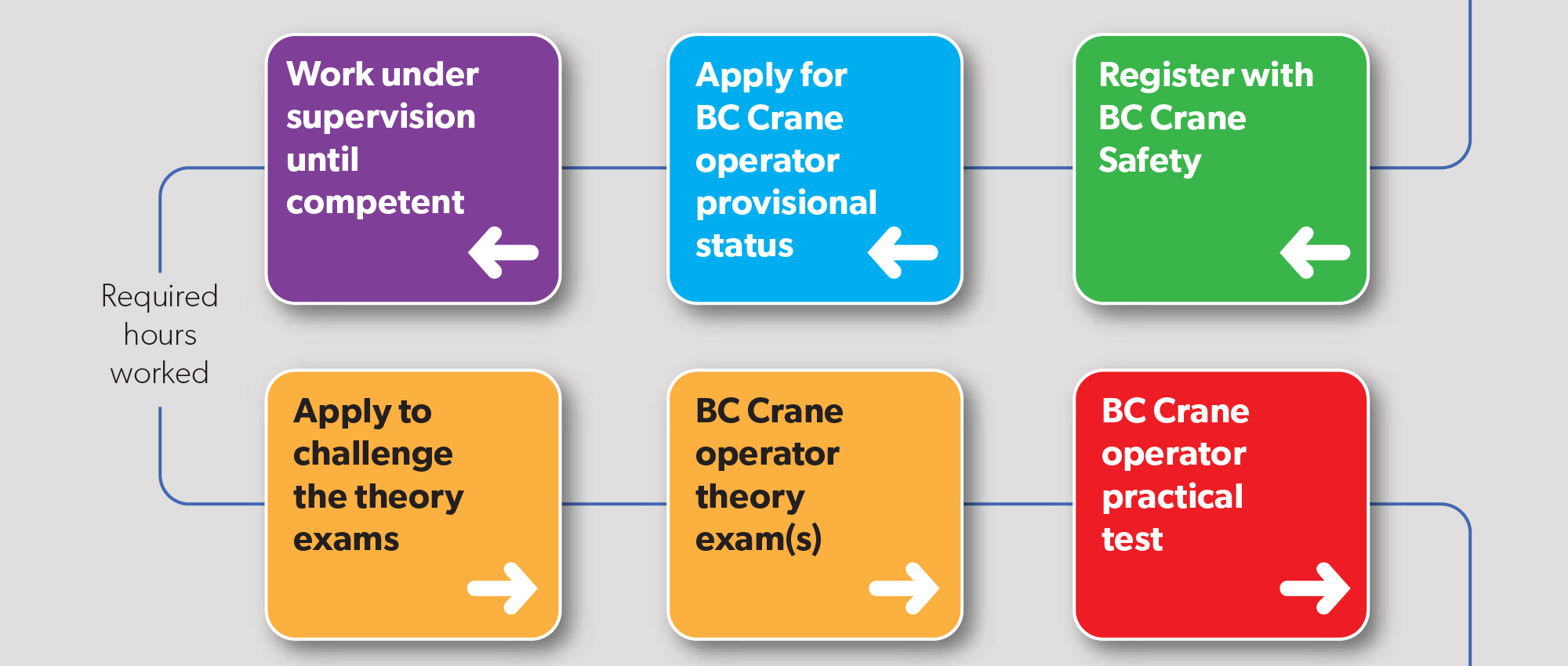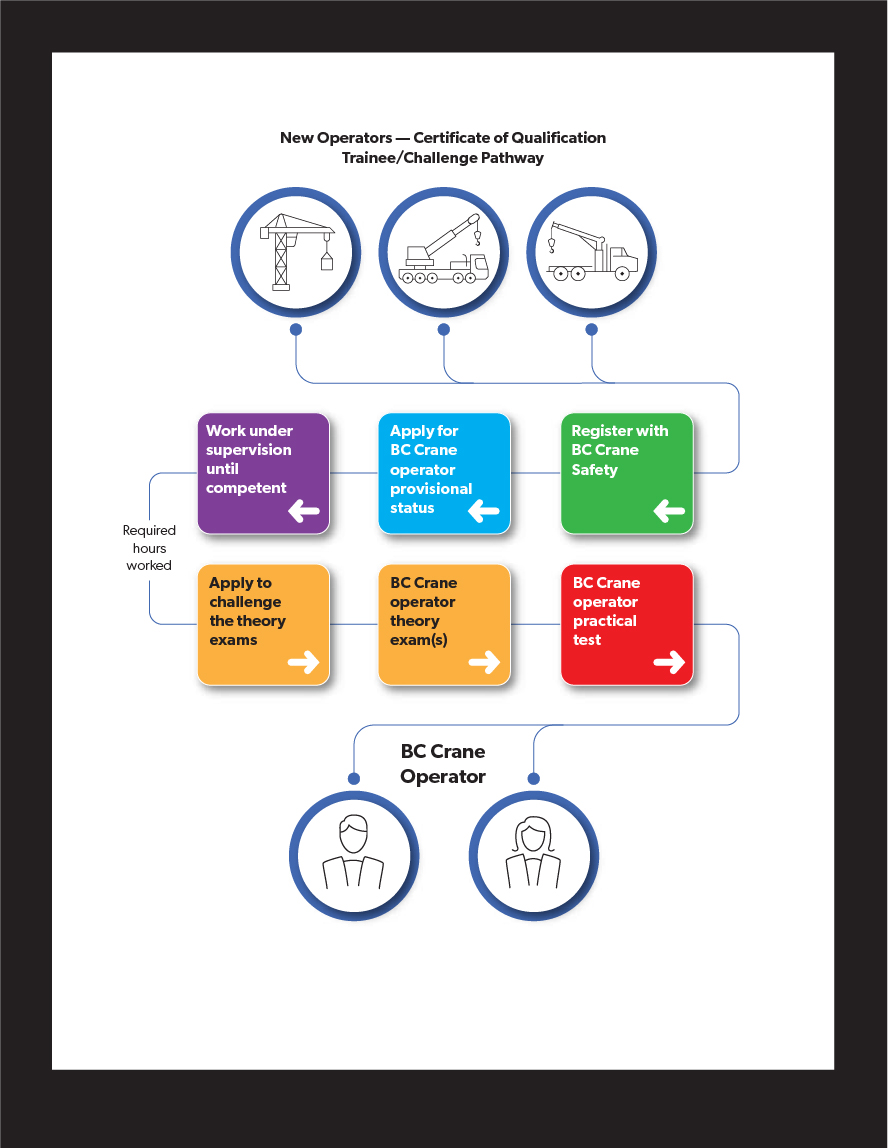Employer Awareness: Conditions of Provisional Certification
// December 5, 2023
When a new crane operator begins a career in BC, they start by achieving a BC Crane Safety Provisional Certificate. The Provisional designation means the operator has demonstrated basic core knowledge of crane operations and is ready to work toward earning their Full Scope Certification while on the job and, in the case of apprentices, in the classroom.
The Provisional Certificate is a bit like a learner’s license for a motor vehicle. It gives the operator the opportunity to learn and develop critical skills on the worksite using the crane type they have specified on their Provisional Certificate.
As with a new driver with a learner’s license, Provisional operators require supervision for their entire training period until they achieve their Full Scope Certification.
In addition to general responsibilities required in all workplaces, if you are an employer, supervisor or mentor, you have important responsibilities for ensuring the proper supervision of Provisional operators, as well as signing off on their progress, and providing guidance and training.
What does supervision mean?
Supervision means oversight of a trainee. It means that someone who is both qualified and competent is assigned by the employer to oversee the Provisional operator’s work until they achieve their Full Scope Certification. (More about what “qualified” and “competent” mean below). The employer is ultimately responsible for ensuring proper supervision at all times.
Supervision may be direct or indirect, depending on the type of work being done.
Direct supervision means the supervisor is in clear line of sight and can give verbal directions to the operator. Direct supervision is required for all critical lifts.
Indirect supervision refers to oversight activities (other than direct supervision) to provide guidance and to ensure the operator is fully qualified to perform routine, non-critical lifts.
Who can be a supervisor?
A supervisor is a person who instructs, directs, and controls workers in the performance of their duties.
In the case of overseeing Provisional operators, the assigned supervisor must be both qualified and competent. Ideally, this person has at least seven years of working knowledge, skills and experience. Some worksites may require more than one qualified and competent person.
Qualified means the person has:
- Successfully completed exams or training courses, or
- Extensive knowledge, training and experience and has successfully demonstrated the ability to solve or resolve problems relating to crane assembly, disassembly, operation, and inspection on a worksite.
Competent means the person can also demonstrate knowledge, ability and skill beyond the successful completion of exams or training courses, including crane assembly, disassembly, operation and inspection. They must also demonstrate the ability to identify and correct job/trade-related hazards.
A recognized, credentialed crane operator can be the qualified and competent supervisor, but that is not the only option. The supervisor’s competencies should include most of the following:
- Rigging knowledge, including specialized rigging on various crane types.
- Knowledge of documentation requirements (e.g., logbooks), Regulations and Standards pertaining to cranes in BC and the Yukon.
- Experience in assembly and disassembly, inspection, and use of cranes.
- Experience co-ordinating crews and workers carrying out assembly and disassembly of cranes.
- Knowledge of the functions, operations and maintenance requirements for cranes.
- Clear communication with engineers, assembly supervisors, WorkSafeBC Safety Officers, other representatives and workers.
- Understanding of site-specific safe work practices and procedures.
- Experience with crane operations, including:
- Conducting site surveys and risk assessments.
- Planning routine, non-routine and critical lifts.
- Acting on roles and responsibilities of crane operators and riggers.
- Assessing and overseeing lift requirements: rigging types, lifting capacity, sling angles, lengths, SWLs, shackles, beams.
- Overseeing crane operations in terms of types, limitations and capacity.
- Understanding of load charts for specific crane types.
More Information from BC Crane Safety:
Provisional Operators Must Work Under Supervision Until Competent
Provisional Crane Operator Certification
Level Up, Own Your Lift Self-Planned Inspections. Provisional Operator Supervisor Questions
BC Crane Operator – Provisional Designation
Do you have any questions? Please contact us at info@bccranesafety.ca. We are here to help!






